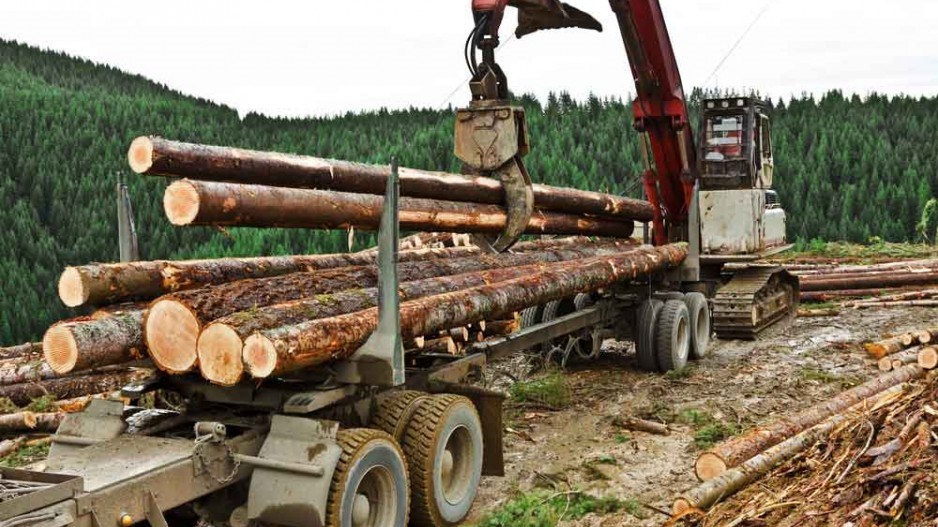While economists take the world’s pulse for signs of a looming global recession, for forestry workers in B.C., it’s already here, says Truck Loggers Association executive director David Elstone.
“We are in a recession for the forest products sector right now – there’s no doubt about it,” Elstone said, adding it’s only a matter of time before some contractors start declaring bankruptcy and taking early retirement.
“I haven’t heard stories yet of people who went bankrupt, but we’re getting really close to that,” Elstone said. “It already is ugly. It’s going to get more ugly.”
He was reacting to the latest curtailment announcement. Teal Jones has announced it will cease all logging in its TFL-46 operations – Fraser Valley and Honeymoon Bay. The company cites “weak lumber markets and the high cost of fibre” for the decision.
That announcement follows several other announcements in recent months of permanent sawmill closures and curtailments in the interior of B.C. and, more recently, in the coastal industry as well.
Just last week, Interfor (TSX:IFP) announced it will permanently close its Hammond cedar sawmill in Maple ridge.
Logging contractors on Vancouver Island are also caught in the middle of a strike between the United Steel workers Union (USW) and Western Forest Products Inc. (TSX:WEF).
Roughly 2,600 USW sawmill workers and loggers on Vancouver Island have been on strike for three months now.
“This is not just Teal Jones that’s talking about them shutting down their operations,” Estone said. “It’s the fact that you have, already, a third of the coastal harvest (workforce) not working because of a strike. We’re talking massive chunks of the coast here not working.”
“There’s a strike on the coast, there’s a timber supply reduction in the interior, and on top of all that, the markets are tanking so bad right now. We’re in a shit-show.”
As for market forces, it’s not just falling lumber prices in the U.S. that’s having an impact in B.C.
According to the Wood Resource Quarterly, the global saw log index fell for the fifth consecutive quarter in the second half of 2019 to a two-year low.
“Log prices were down on all continents, with the biggest declines occurring in Europe,” the Wood Resource Quarterly reports.
“U.S. softwood log shipments to China have fallen by $124 million in value since the trade war started May 2018.”
The price for pulp logs and wood chips have also been falling.
“Pulp mills around the world have had to tackle both weak demand and high inventories of pulp during the second quarter of 2019,” the report states.
The provincial government is coming under increasing pressure to at least reduce stumpage costs – something Doug Donaldson, the minister of Forests, Lands and Natural Resource Operations, says would only increase allegations from American lumber producers that B.C. is subsidizing its forest industry.
B.C. forestry companies are already paying anti-dumping duties, based on findings by American officials that Canada is dumping subsidized lumber in to the U.S.




